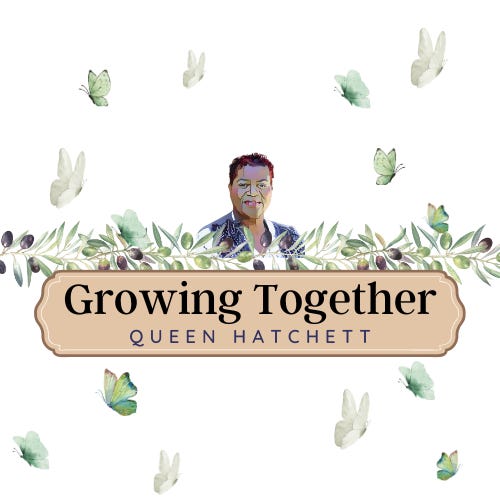📌Caution: Teaching in this video includes material of a very sensitive and graphic nature. 📌
Rizpah: A woman & mother found in the Old Testament book of 2 Samuel. Concubine of King Saul, mother of two sons. Rizpah is left to grieve the loss of her innocent sons while faced with the seemingly impossible task of defending their honor. With her faith in God and Matchless Motherly Love, we see her triumph.
There was a three-year famine in Israel, and David wondered if it was judgment from God. So, he went to God and asked him concerning the famine. This is what God told him:
2 Samuel 21:1 Then there was a famine in the days of David three years, year after year; and David enquired of the Lord. And the Lord answered, It is for Saul, and for his bloody house, because he slew the Gibeonites.
So, God sent the famine because of the breach of contract between Israel and the Gibeonites. Read the origin story of the contract/covenant Joshua made between Israel and the Gibeonites here: Joshua 9:1-27.
After hearing what God had said, David asked the Gibeonites how atonement could be made for the slaughter.
2 Samuel 21:3 Wherefore David said unto the Gibeonites, What shall I do for you? and wherewith shall I make the atonement, that ye may bless the inheritance of the Lord?
The Gibeonites said that they wanted 7 of King Saul’s sons to be executed. So, King David chose 2 of Rizpah’s sons by King Saul, Amani and Mephibosheth, and 5 of Saul’s daughters’ sons. So, two of Saul’s sons and 5 of his grandsons were chosen by David to satisfy the Gibeonites.
Note: One of Rizpah’s sons, Mephibosheth, was not the son of Jonathan. Jonathan’s son was injured when he was five years old which crippled him the rest of his life.
The Gibeonites slaughtered the 7 men in Gibeah, out on a hill. They left them there hanging. Rizpah, mother of Amani and Mephibosheth, mourned for her children, and I am sure that Saul’s daughter did the same. However, Rizpah went further than mourning. For between 4 and six months, Rizpah stayed out there on that hill with her sons' exposed bodies. She spread a cloth and made it her bed. By night, she fought off the wild beasts. By day, she fought off the fowls of the air from preying upon her sons’ bodies.
🦅And Rizpah the daughter of Aiah took sackcloth, and spread it for her upon the rock, from the beginning of harvest until water dropped upon them out of heaven, and suffered neither the birds of the air to rest on them by day, nor the beasts of the field by night. (2 Samuel 21:10)
The bible says that they “were put to death in the days of harvest, in the first days, in the beginning of barley harvest.
This time, according to Bible scholars, was between 4 and 6 months. Wilda Gafney, Womanist Midrash: A Reintroduction to the Women of the Torah and the Throne (Louisville: Westminster John Knox Press, 2017), 200–201.
David got word that Rizpah was on the hill protecting her sons’ bodies. He went there, took the bones and what was left of her two sons, and the 5 sons of Saul’s daughter, and buried them. He also went and got the bodies of Saul and Jonathan that their enemies had kept during the war, and buried Rizpah’s two sons and all the rest in Saul’s father, Kish’s, tomb.
It wasn’t until after this action that God stopped the famine. God did not stop the famine after the men were killed, but after the men were buried.
✍🏾Points about Rizpah and this narrative:
1. Rizpah’s sons suffered because of the sins of someone else, not their own. They were innocent.
Rizpah kept with the rule of burying her sons, no matter what people thought. She protected their honor as much as she could and as long as she could. She fought for their dignity, even after their death. She knew that her sons were innocent and stood by them even after their deaths. Deuteronomy 21:22-23 says:
And if a man have committed a sin worthy of death, and he be to be put to death, and thou hang him on a tree: His body shall not remain all night upon the tree, but thou shalt in any wise bury him that day; (for he that is hanged is accursed of God;) that thy land be not defiled, which the Lord thy God giveth thee for an inheritance.
2. Her actions moved God to the point that he caused the famine to stop and didn’t stop it until after the men were buried honorably. God heard her prayers and saw her tears and was moved by them.
3. Revenge may have been sweet to the Gibeonites, but justice was not given to Rizpah’s sons. But even so, God gave her justice by giving her sons a royal and decent burial.
Bio:
Queen Kirkwood Hatchett is a poet and writer who has self-published most of her written works, including A General Study of the Books of the Bible, Transitioning from Promise to Fulfillment, and her memoir, Survival of the Inner Man. Her most famous poem, Crack: The Drug from Hell, from her first publication, From the Heart: A Book of Poetry(©️1994 Hodale Press), opened many doors for her. She has received a host of plaques, awards, and certificates for her dedication to the community and Body of Christ, her writings, and her volunteer services. A survivor of childhood sexual and physical abuse, Queen is a creative artist who doesn’t separate her faith from her life’s work. When she is not writing, she enjoys time with family and friends or making something with her hands.














Share this post